1、Pan CW, Ramamurthy D, Saw SM. Worldwide prevalence and risk
factors for myopia[ J]. Ophthalmic Physiol Opt, 2012, 32(1): 3-16.Pan CW, Ramamurthy D, Saw SM. Worldwide prevalence and risk
factors for myopia[ J]. Ophthalmic Physiol Opt, 2012, 32(1): 3-16.
2、Jia Y, Hu DN, Sun J, et al. Correlations between MMPs and TIMPs
levels in aqueous humor from high myopia and cataract patients[ J].
Curr Eye Res, 2017, 42(4): 600-603.Jia Y, Hu DN, Sun J, et al. Correlations between MMPs and TIMPs
levels in aqueous humor from high myopia and cataract patients[ J].
Curr Eye Res, 2017, 42(4): 600-603.
3、Baoson L. Application capsular tension ring in phacoemulsification and IOL insertion surgery for hypermyopia patients with cataract[ J]. Rec Adv Ophthamol, 2010, 30(11): 1065-1067.Baoson L. Application capsular tension ring in phacoemulsification and IOL insertion surgery for hypermyopia patients with cataract[ J]. Rec Adv Ophthamol, 2010, 30(11): 1065-1067.
4、Gu X, Chen X, Yang G, et al. Determinants of intraocular lens tilt and decentration after cataract surgery[ J]. Ann Transl Med, 2020, 8(15): 921Gu X, Chen X, Yang G, et al. Determinants of intraocular lens tilt and decentration after cataract surgery[ J]. Ann Transl Med, 2020, 8(15): 921
5、Wang L, Jin G, Zhang J, et al. Clinically significant intraocular lens
decentration and tilt in highly myopic eyes: a swept-source optical
coherence tomography study[ J]. Am J Ophthalmol, 2022, 235: 46-55.Wang L, Jin G, Zhang J, et al. Clinically significant intraocular lens
decentration and tilt in highly myopic eyes: a swept-source optical
coherence tomography study[ J]. Am J Ophthalmol, 2022, 235: 46-55.
6、Takamura Y, Tomomatsu T, Arimura S, et al. Anterior capsule
contraction and flare intensity in the early stages after cataract surgery
in eyes with diabetic retinopathy[ J]. J Cataract Refract Surg, 2013,
39(5): 716-721.Takamura Y, Tomomatsu T, Arimura S, et al. Anterior capsule
contraction and flare intensity in the early stages after cataract surgery
in eyes with diabetic retinopathy[ J]. J Cataract Refract Surg, 2013,
39(5): 716-721.
7、Takimoto M, Hayashi K, Hayashi H. Effect of a capsular tension ring
on prevention of intraocular lens decentration and tilt and on anterior
capsule contraction after cataract surgery[ J]. Jpn J Ophthalmol, 2008,
52(5): 363-367.Takimoto M, Hayashi K, Hayashi H. Effect of a capsular tension ring
on prevention of intraocular lens decentration and tilt and on anterior
capsule contraction after cataract surgery[ J]. Jpn J Ophthalmol, 2008,
52(5): 363-367.
8、Zhang K, Dong Y, Zhao M, et al. The effect of capsule tension ring on posterior capsule opacification: a meta-analysis[ J]. PLoS One, 2021, 16(3): e0246316.Zhang K, Dong Y, Zhao M, et al. The effect of capsule tension ring on posterior capsule opacification: a meta-analysis[ J]. PLoS One, 2021, 16(3): e0246316.
9、Chong EW, Mehta JS. High myopia and cataract surgery[ J]. Curr Opin
Ophthalmol, 2016, 27(1): 45-50.Chong EW, Mehta JS. High myopia and cataract surgery[ J]. Curr Opin
Ophthalmol, 2016, 27(1): 45-50.
10、Xia T, Martinez CE, Tsai LM. Update on intraocular lens formulas and
calculations[ J]. Asia Pac J Ophthalmol (Phila), 2020, 9(3): 186-193.Xia T, Martinez CE, Tsai LM. Update on intraocular lens formulas and
calculations[ J]. Asia Pac J Ophthalmol (Phila), 2020, 9(3): 186-193.
11、Saadet%20GI%2C%20Fatih%20%C3%96.%20Effect%20of%20the%20capsular%20tension%20ring%20on%20refractive%20%0Aoutcome%20after%20phacoemulsification%5B%20J%5D.%20Rom%20J%20Ophthalmol%2C%202021%2C%20%0A65(1)%3A%2059-63.Saadet%20GI%2C%20Fatih%20%C3%96.%20Effect%20of%20the%20capsular%20tension%20ring%20on%20refractive%20%0Aoutcome%20after%20phacoemulsification%5B%20J%5D.%20Rom%20J%20Ophthalmol%2C%202021%2C%20%0A65(1)%3A%2059-63.
12、Boomer JA, Jackson DW. Effect of the Morcher capsular tension ring
on refractive outcome[ J]. J Cataract Refract Surg, 2006, 32(7): 1180-
1183.Boomer JA, Jackson DW. Effect of the Morcher capsular tension ring
on refractive outcome[ J]. J Cataract Refract Surg, 2006, 32(7): 1180-
1183.
13、Singapore%2C%20Asia-Pacific%20Association%20of%20Cataract%20and%20Refractive%20%0ASurgeons.Barrett%20Universal%20%E2%85%A1%20Formula%5BEB%2FOL%5D.(2019-02-25).http%3A%2F%2F%0Acalc.apacrs.org%2Fbarrett_universal2105%2F%3Ftrue.Singapore%2C%20Asia-Pacific%20Association%20of%20Cataract%20and%20Refractive%20%0ASurgeons.Barrett%20Universal%20%E2%85%A1%20Formula%5BEB%2FOL%5D.(2019-02-25).http%3A%2F%2F%0Acalc.apacrs.org%2Fbarrett_universal2105%2F%3Ftrue.
14、EVO Formula[EB/OL].(2021-04-01). https://www.evoiolformula.
com.EVO Formula[EB/OL].(2021-04-01). https://www.evoiolformula.
com.
15、Kane Formula[EB/OL]. (2020-10-15). https://www.iolformula.com.Kane Formula[EB/OL]. (2020-10-15). https://www.iolformula.com.
16、Pearl DGS. Accessed February 16, 2020.www.iolsolver.com.Pearl DGS. Accessed February 16, 2020.www.iolsolver.com.
17、Hill WE. Hill-RBF calculator version 2.0[EB/OL].(2019-02-25).
http://rbfcalculator.com/online/index.html.Hill WE. Hill-RBF calculator version 2.0[EB/OL].(2019-02-25).
http://rbfcalculator.com/online/index.html.
18、User Group for Laser Interference Biometry. Available at:http://
ocusoft.de/ulib/c1.htm. Accessed January 14, 2018.User Group for Laser Interference Biometry. Available at:http://
ocusoft.de/ulib/c1.htm. Accessed January 14, 2018.
19、McNamara P, Hutchinson I, Thornell E, et al. Refractive stability
following uncomplicated cataract surgery[ J]. Clin Exp Optom, 2019,
102(2): 154-159.McNamara P, Hutchinson I, Thornell E, et al. Refractive stability
following uncomplicated cataract surgery[ J]. Clin Exp Optom, 2019,
102(2): 154-159.
20、WeberC, CionniR. All about capsular tension rings[ J]. Curr Opin Ophthalmol, 2015, 26(1):10-15.WeberC, CionniR. All about capsular tension rings[ J]. Curr Opin Ophthalmol, 2015, 26(1):10-15.
21、Yang S, Jiang H, Nie K, et al. Effect of capsular tension ring implantation on capsular stability after phacoemulsification in patients with weak zonules: a randomized controlled trial. CTR implantation in cataract patients with weak zonules[ J]. BMC Ophthalmol, 2021, 21(1): 19.Yang S, Jiang H, Nie K, et al. Effect of capsular tension ring implantation on capsular stability after phacoemulsification in patients with weak zonules: a randomized controlled trial. CTR implantation in cataract patients with weak zonules[ J]. BMC Ophthalmol, 2021, 21(1): 19.
22、Findl O, Drexler W, Menapace R, et al. Accurate determination of
effective lens position and lens-capsule distance with 4 intraocular
lenses[ J]. J Cataract Refract Surg, 1998, 24(8): 1094-1098.Findl O, Drexler W, Menapace R, et al. Accurate determination of
effective lens position and lens-capsule distance with 4 intraocular
lenses[ J]. J Cataract Refract Surg, 1998, 24(8): 1094-1098.
23、Jacob S, Agarwal A, Agarwal A, et al. Effcacy of a capsular tension ring
for phacoemulsification in eyes with zonular dialysis[ J]. J Cataract
Refract Surg, 2003, 29(2): 315-321.Jacob S, Agarwal A, Agarwal A, et al. Effcacy of a capsular tension ring
for phacoemulsification in eyes with zonular dialysis[ J]. J Cataract
Refract Surg, 2003, 29(2): 315-321.
24、Baranwal VK, Kumar S, Mishra A, et al. A study to evaluate whether
CTR increases refractive unpredictability between predicted and actual
IOL position[ J]. Med J Armed Forces India, 2014, 70(1): 36-38.Baranwal VK, Kumar S, Mishra A, et al. A study to evaluate whether
CTR increases refractive unpredictability between predicted and actual
IOL position[ J]. Med J Armed Forces India, 2014, 70(1): 36-38.
25、Gimbel HV, Sun R, Heston JP. Management of zonular dialysis in
phacoemulsification and IOL implantation using the capsular tension
ring[ J]. Ophthalmic Surg Lasers, 1997, 28(4): 273-281.Gimbel HV, Sun R, Heston JP. Management of zonular dialysis in
phacoemulsification and IOL implantation using the capsular tension
ring[ J]. Ophthalmic Surg Lasers, 1997, 28(4): 273-281.
26、Reitblat O, Levy A, Kleinmann G, et al. Intraocular lens power
calculation for eyes with high and low average keratometry readings:
comparison between various formulas[ J]. J Cataract Refract Surg,
2017, 43(9): 1149-1156.Reitblat O, Levy A, Kleinmann G, et al. Intraocular lens power
calculation for eyes with high and low average keratometry readings:
comparison between various formulas[ J]. J Cataract Refract Surg,
2017, 43(9): 1149-1156.


